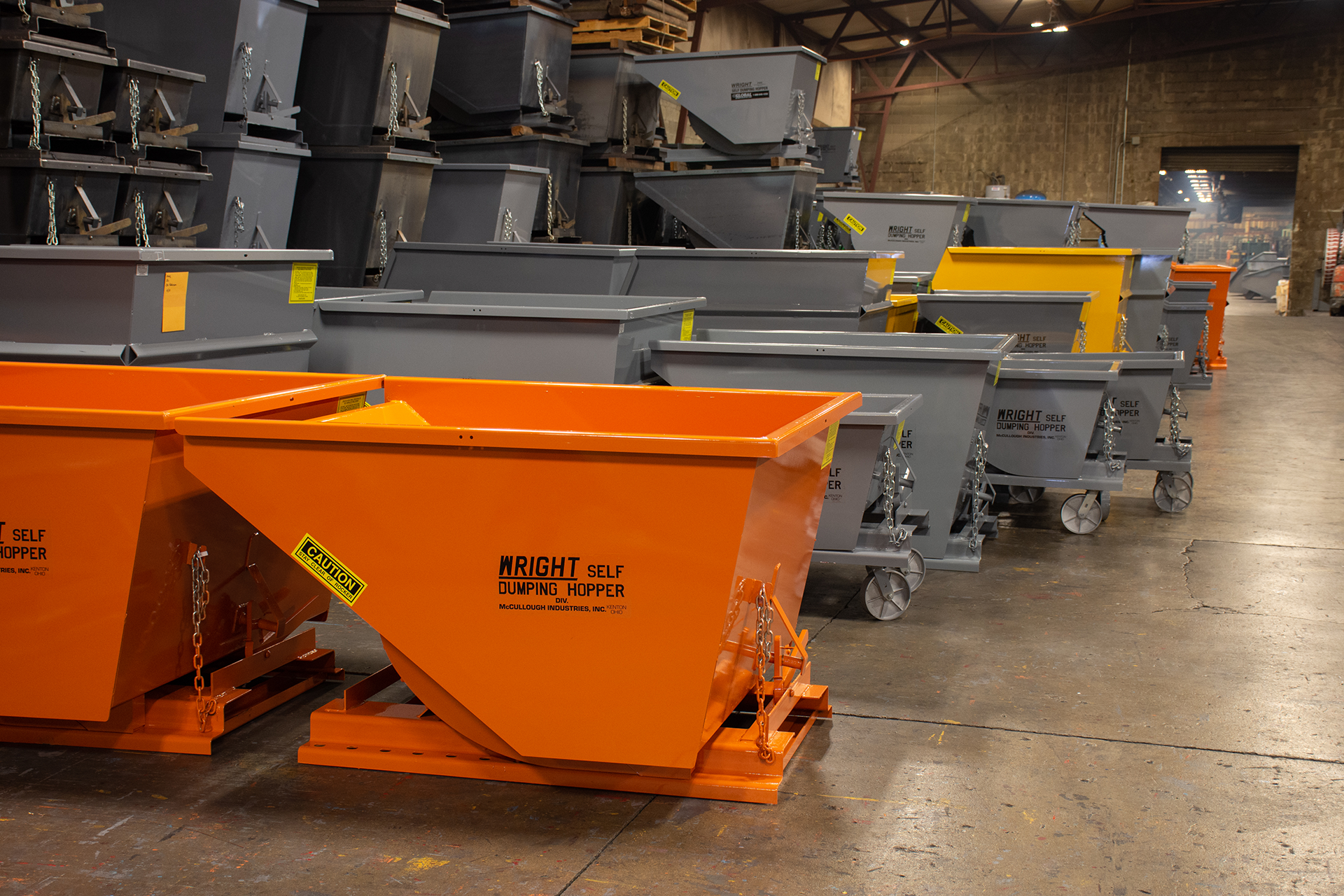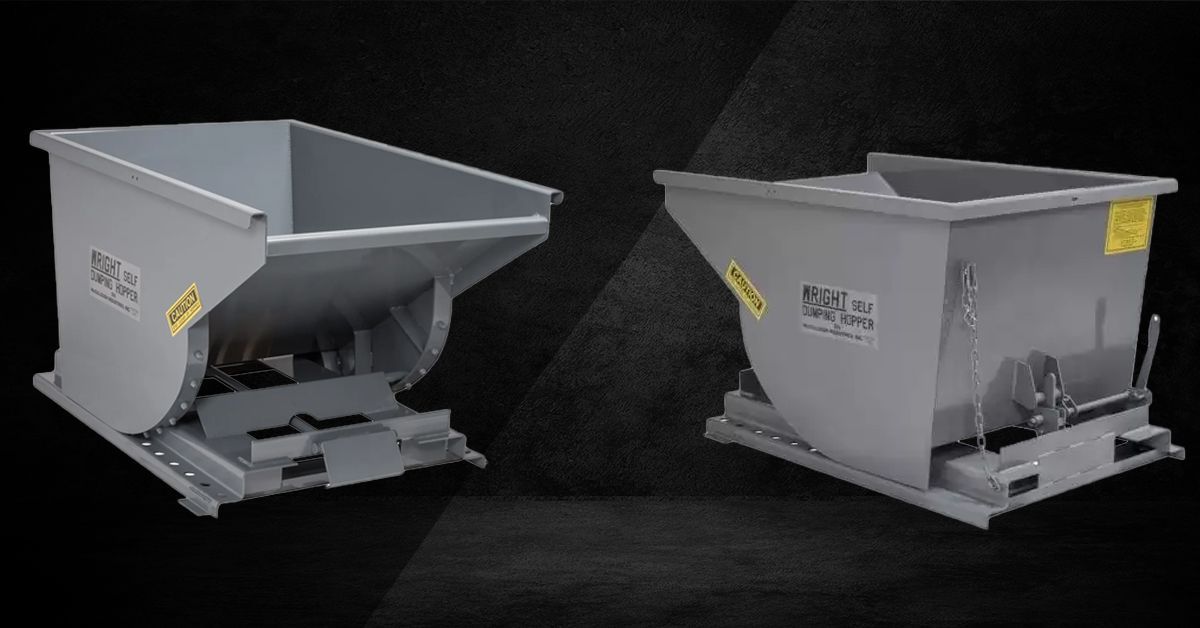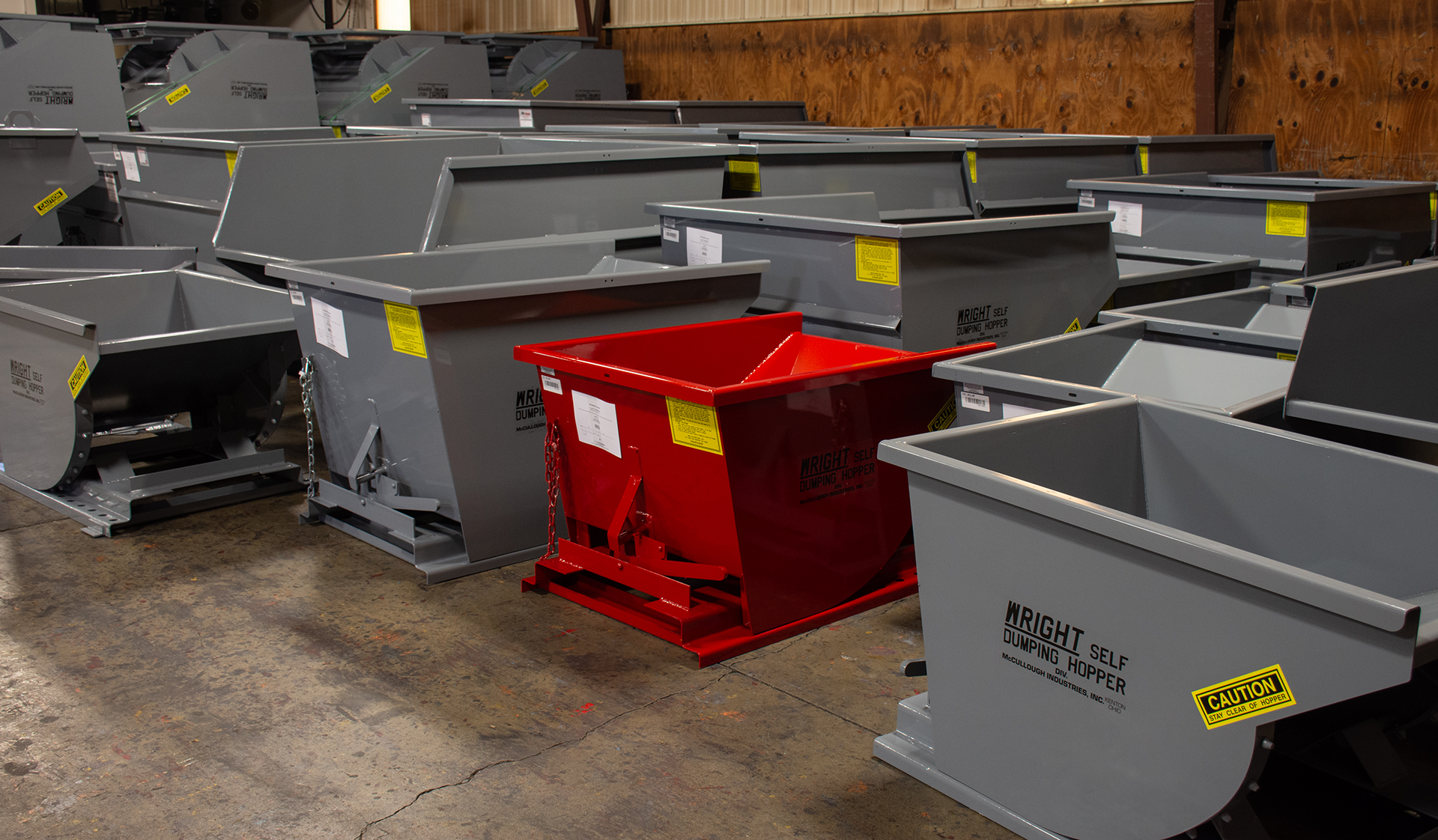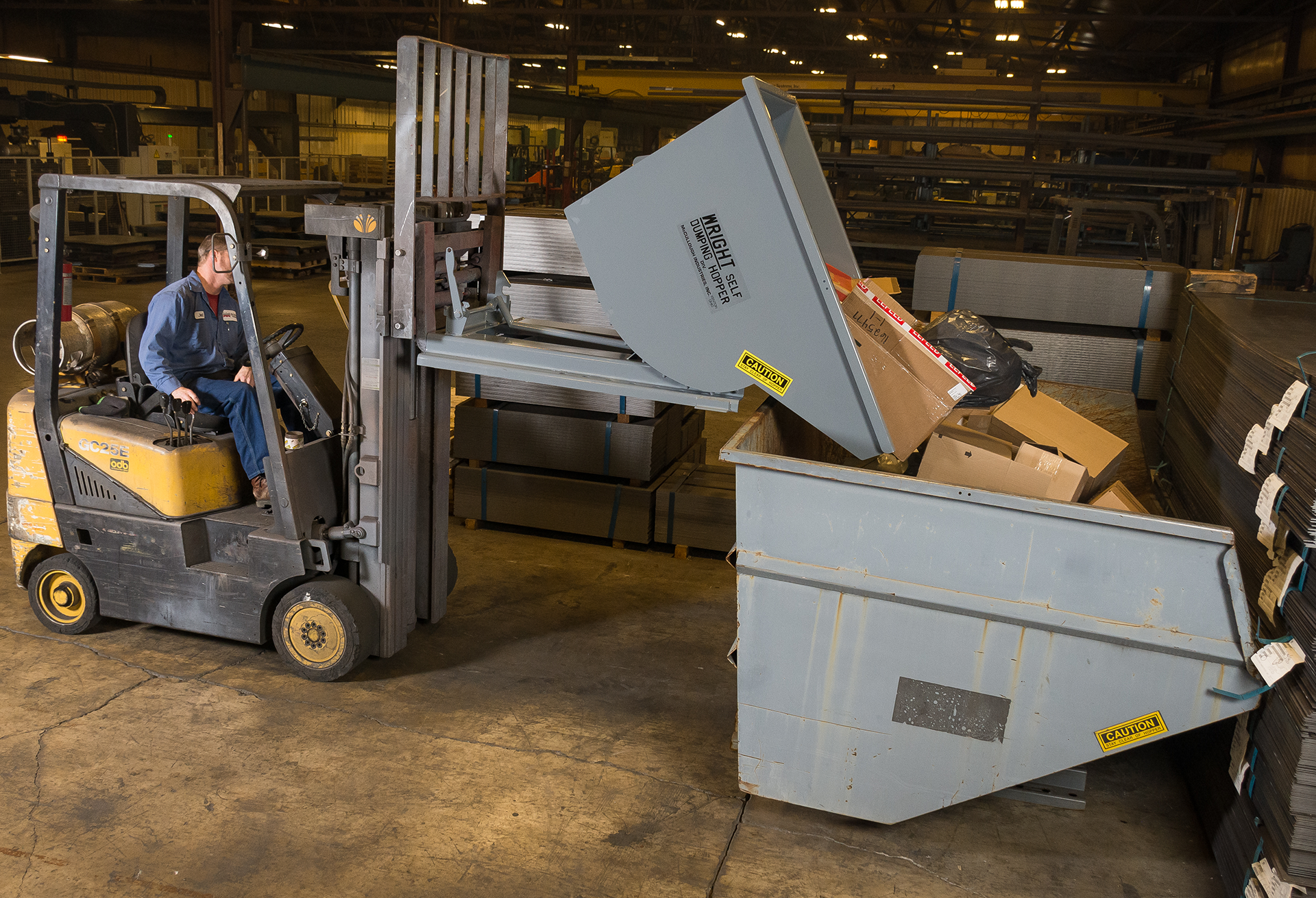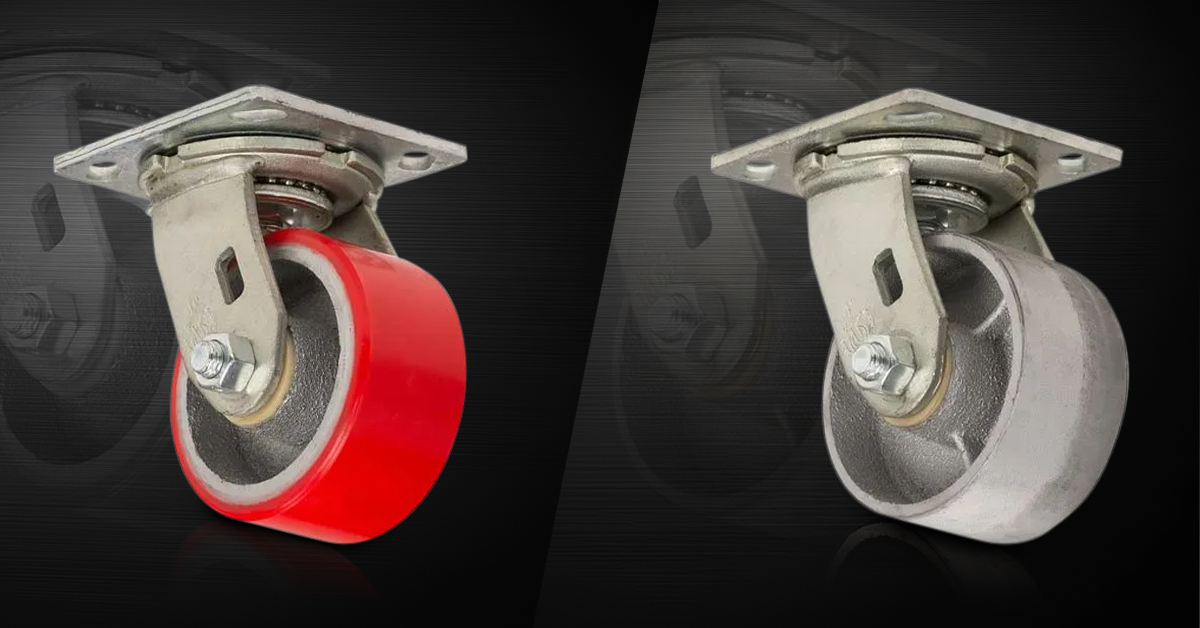
When it comes to material handling equipment, every detail matters—and that includes the casters. For self-dumping hoppers, casters directly affect how safely and efficiently equipment moves across the floor. Choosing between polyurethane and steel casters isn’t just a matter of cost. It’s about matching the caster material to your specific facility conditions, load weights, and safety needs.
McCullough Industries offers plastic, steel, poly, and rubber caster built to handle industrial environments. In this blog, we’ll walk through how each caster type performs, where each one works best, and what to consider before selecting the right configuration for your hopper.
The Role of Casters in Hopper Performance
Casters are more than a convenience they’re an operational feature that allows hoppers to move easily to and from dump zones. For teams that use hoppers on a daily basis, especially in dynamic environments, mobility is essential. Casters help reduce manual handling, lower strain on operators, and improve overall flow throughout a workspace.
However, not all casters are built the same. Some are made for smooth floors. Others are designed to handle heavy loads, debris, or uneven terrain. McCullough Industries provides multiple caster options rated up to 4,000 pounds per set, and each comes with specific strengths.
Polyurethane Casters: Quiet, Smooth, and Floor Friendly
Polyurethane casters are a popular choice for indoor environments where noise, floor preservation, and rolling ease are priorities. These wheels feature a durable, non-marking tread that glides over smooth concrete or coated floors with minimal friction.
Facilities with high foot traffic, sensitive flooring, or clean-room operations often prefer polyurethane for its quiet, smooth performance. These casters reduce vibration, protect floor coatings, and make maneuvering easier when space is tight.
Other benefits of polyurethane include resistance to water, oil, and most chemicals. They maintain traction and resilience even with daily use. That makes them a great match for production lines, food manufacturing, warehouses, and labs.
Steel Casters: Built for Heavy Duty Use and Harsh Conditions
Steel casters offer raw strength and toughness, making them a better fit for rugged environments. These wheels can absorb impact from debris, resist flat-spotting under heavy loads, and endure high temperatures.
If your hopper is used in outdoor yards, metalworking facilities, or scrap handling areas where floor conditions aren’t ideal, steel casters may be the better option. They don’t wear down as quickly on abrasive surfaces and they can support extreme loads without compromising rollability.
Steel casters also perform well in facilities where heavy carts, bins, or hoppers are moved over expansion joints or rough concrete. While they may generate more noise, their durability in aggressive environments more than makes up for it.
Factors to Consider When Choosing Casters
Before selecting between polyurethane and steel casters, think through the following:
- Flooring Type: Smooth, finished floors do better with poly. Rough, uneven surfaces favor steel.
- Load Weight: Poly casters support moderate to heavy loads, but steel is better for extreme weights.
- Noise Sensitivity: Polyurethane is quieter. Steel casters produce more sound during rolling.
- Exposure to Debris: Steel handles dirt and scrap better than poly.
- Temperature Range: Steel resists high heat and cold better than most polyurethane blends.
- Ease of Movement: Poly glides more easily on clean floors; steel may require more force.
Choosing the right caster means understanding both the environment and the demands placed on the hopper.
Caster Configuration Options at McCullough Industries
At McCullough Industries, our hoppers can be fitted with a full set of four casters, including swivel, rigid, or a combination of both. This gives operators the ability to maneuver precisely or maintain a fixed path depending on the application.
We also offer braking casters for added control when loading or staging, and our caster plates are welded in place to ensure strength and durability across the service life of the hopper.
Our standard caster offerings include:
- Polyurethane Casters: Non-marking, chemical-resistant, rated for indoor smooth floor use
- Steel Casters: All-metal construction, best for scrap, debris, and rugged terrain
- Rubber Casters: (Optional) Suitable for general use and shock absorption in light-duty settings
Each set is selected and installed based on the weight class and usage pattern of your hopper model.
Making the Right Call for Your Operation
It’s easy to overlook casters when choosing hopper specs, but their impact on day-to-day usability is substantial. The right caster can reduce wear on equipment, improve workflow, and make movement safer and easier for operators.
Whether you need the smooth roll of polyurethane for a clean warehouse or the rugged endurance of steel for your yard or fabrication floor, McCullough Industries can configure your hopper to match your needs.
Not Sure Which Casters Fit Your Environment?
Let our team help. McCullough Industries has been building custom-configured hoppers for over six decades. We understand the pressure industrial teams face and we design every unit to reduce complexity, increase safety, and last for the long haul.
Contact us today to review your application and determine which caster setup makes the most sense for your team and your floor.


